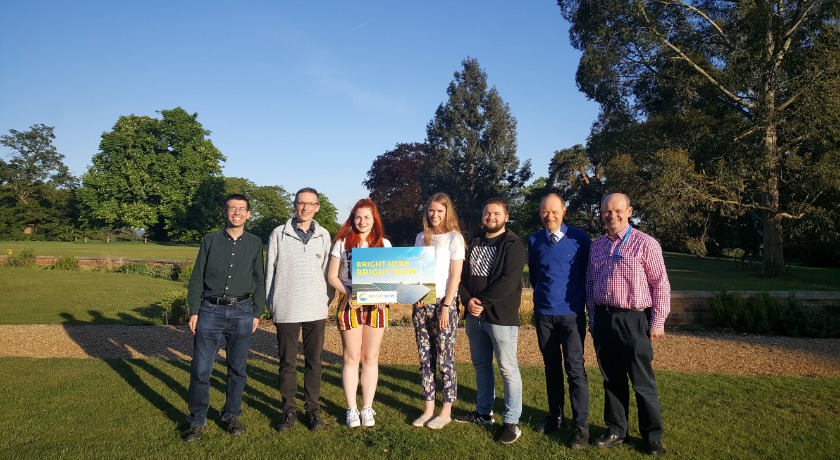 The United Reformed Church (URC) has unanimously approved a proposal to divest from fossil fuel companies.
The United Reformed Church (URC) has unanimously approved a proposal to divest from fossil fuel companies.
The Revd Dr David Pickering, Moderator of the URC National Synod of Scotland, presented the resolution at the meeting of the URC Mission Council, which took place at the High Leigh Conference Centre, Hoddesdon, from May 13-15.
He was supported in the preparation of the resolution by James Buchanan, Campaign Manager for Bright Now, a campaign run by Operation Noah, a Christian charity working with the Church to inspire action on climate change.
Dr Pickering said: ‘I think it's fantastic that a prophetic decision was taken today by the United Reformed Church to end investments in fossil fuels and to up investments in renewable energy.
‘As Christians, we are challenged to be good stewards of God's creation and as a Church we have taken a welcome new step.’
During the debate, the proposal had the support of Natalie Gibbs, one of the Moderators of the URC Youth Assembly, who spoke on its behalf.
‘We believe that by divesting from fossil fuels we can support God’s creation on a scale that is now needed given our planet’s fragile condition,’ Natalie said. ‘It will be URC Youth members that have to live through and deal with this volatile future planet if change does not happen now.’
The URC now urges its trust bodies to:
a) not invest in fossil fuel companies whose total turnover is more than 10% derived from the extraction and/or supply of fossil fuels, including thermal coal, natural gas and oil
b) complete the divestment required to fulfil this decision by the time the URC General Assembly meets in 2020
c) widen their proactive role as investors, by engaging further with companies whose activities foster significant carbon emissions, for example the electricity and automotive industries, and producers of energy intensive products (e.g. cement)
d) refocus the Church’s investment portfolio by scaling up investment in renewable energy and clean technologies.
Mission Council further resolves to:
e) encourage publicity of these actions and the rationale behind them, so that the URC can use its influence to advocate an end to the exploration for new oil and gas reserves, and the managed decline of fossil fuel production
f) advocate to the UK government and others for action to foster the transition to a net zero carbon economy
g) encourage URC synods and local URC churches with investments to divest from fossil fuels, and reinvest in clean alternatives
h) support and encourage churches and church members to reduce their consumption of fossil fuels, and so participate in a just transition to a zero-carbon future
i) request the Resources Centres for Learning to ensure that those being prepared for service and leadership are cognisant of the global and spiritual context of the climate crisis.
Welcoming the motion, Amanda Mukwashi, Chief Executive of Christian Aid, said: ‘To achieve climate justice we need to ensure an extremely rapid transition out of the use of fossil fuels and the onus must be on those whose emissions are historically the highest, to transition first and fastest. The Church needs to be at the forefront of putting our money where our mouth, and our heart, is.’
In 2014, Brighthelm URC in Brighton became the first local church in the UK to divest from fossil fuel companies, and in 2015, the URC National Synod of Scotland became the first URC synod to divest.
James Buchanan added: 'We are delighted that the URC has decided to divest. This is a hugely positive response to the climate emergency. We hope many other churches will join them in divesting from fossil fuels and investing in clean alternatives.'
Notes
Pictured from left to right: James Buchanan, Bright Now Campaign Manager, the Revd Alex Mabbs, Minister of Brighthelm URC, Katie Henderson and Natalie Gibbs, co-Moderators of URC Youth Assembly, AJ Mills, representative of URC Youth Assembly to the Mission Council, the Revd Dr David Pickering and Mark Kirkbride from the URC National Synod of Scotland.
The United Reformed Church Synod of Scotland’s resolution and accompanying paper ‘Creating a climate of change’ can be found on the URC website:




